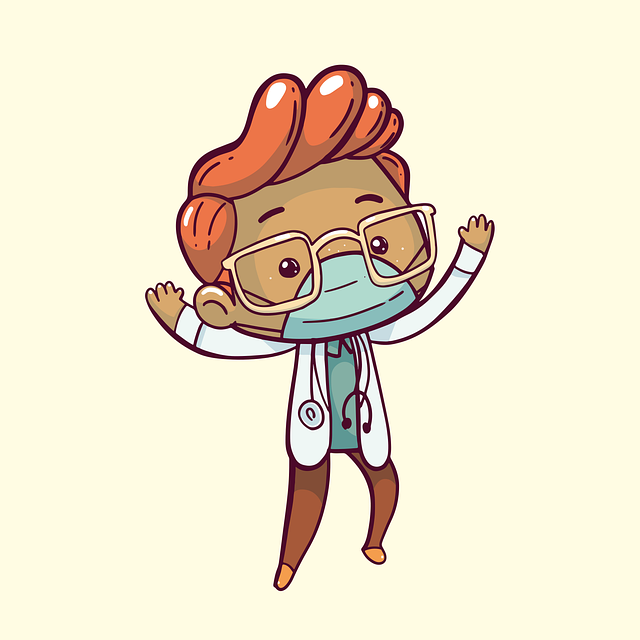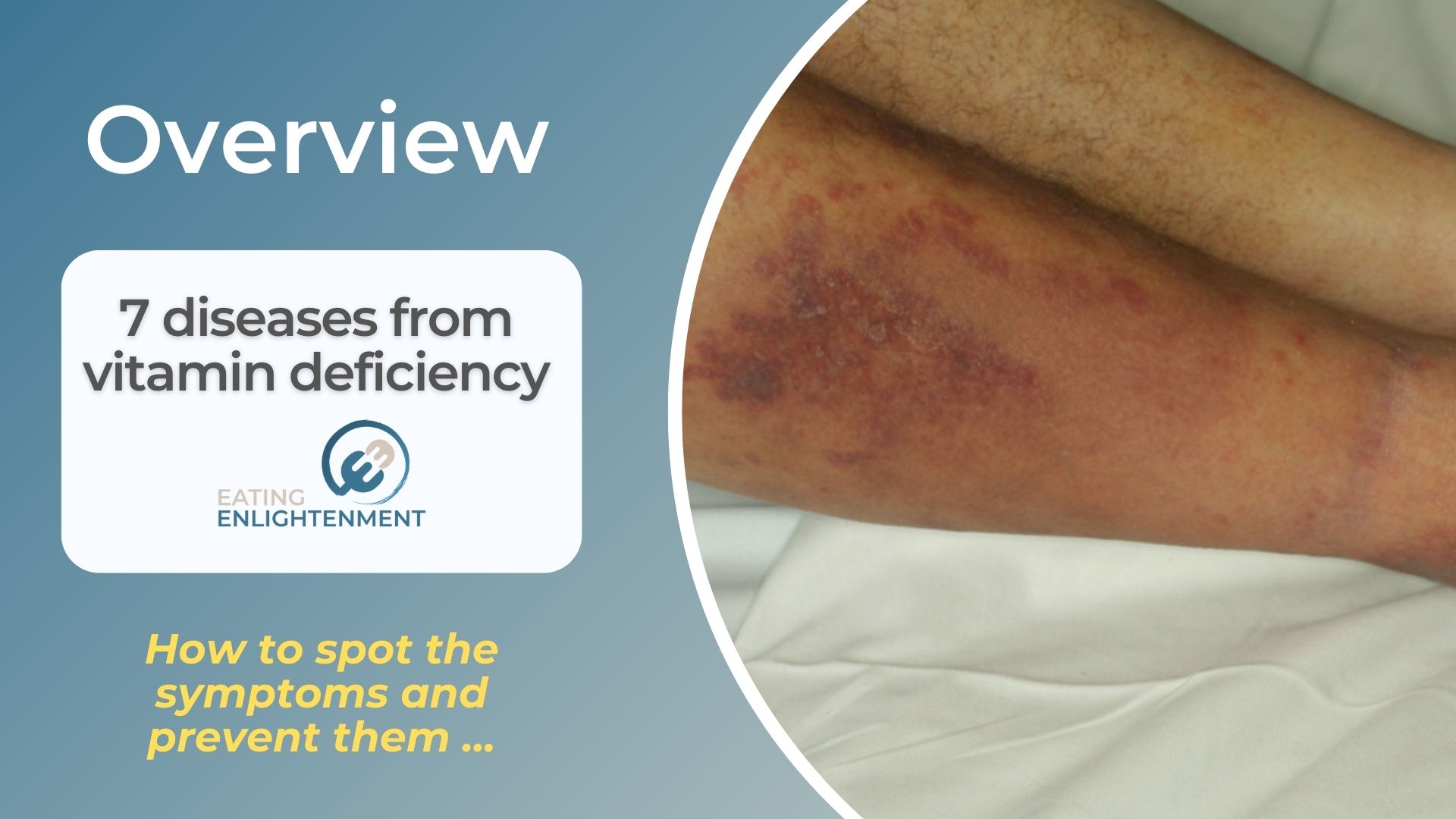Did you know that vitamin deficiency can cause disease?
It’s true! If your body isn’t getting the vitamins it needs, you may start to experience some unpleasant symptoms.
In this blog post, we’ll discuss about seven factors of vitamin deficiency which causes diseases.We will also provide tips on how to spot the symptoms and prevent these diseases from occurring. So read on to learn more!
Deficiency Diseases Definition

Lack of essential nutrients can cause dificiency diseases. It can be due to inadequate diet or unable to absorb the nutrient.
And it’s one of the most common problems in the world. A simple change of diet can help the diseases which cause millions of people die.
What are the types of Deficiency Diseases?
There are two types of deficiency diseases: those caused by a lack of vitamins and those caused by a lack of minerals.
One or more vitamins can really be a cause of vitamin deficiency.
Minerals, on the other hand, are inorganic substances that are required for the proper functioning of the body.
Common examples of vitamin deficiency diseases include scurvy, rickets, and beriberi.
Mineral Deficiency Disease
One of the most important factors to understand is that mineral deficiencies causes diseases. For example, iron deficiency can lead to anemia, while iodine deficiency can lead to goiter. Therefore, it is important to make sure that you are getting enough of these minerals in your diet. You can do this by eating foods that are rich in these minerals or by taking supplements.
List of Deficiency diseases
- Scurvy
- Rickets
- Osteoporosis
- Beriberi
- Pellagra
- Night blindness
- Ascorbic acid deficiency diseases
Lack of vitamin C is what causes scurvy. Symptoms of scurvy include bleeding gums, easy bruising, and fatigue. Scurvy can be prevented by eating foods that are rich in vitamin C, such as citrus fruits, tomatoes, and broccoli.
Lack of vitamin D is what causes Rickets. Symptoms of rickets include softening of the bones, skeletal deformities, and muscle weakness. Rickets can be prevented by getting enough vitamin D through exposure to sunlight or by taking supplements.
Lack of vitamin D is what causes osteoporosis. Symptoms of osteoporosis include bone loss, fractures, and joint pain. Osteoporosis can be prevented by getting enough vitamin D through exposure to sunlight or by taking supplements.
Lack of vitamin C is what causes beriberi. Symptoms of beriberi include fatigue, appetite loss, and nerve damage. Beriberi can be prevented by eating foods that are rich in vitamin B, such as whole grains, nuts, and seeds.
Lack of vitamin C is what causes Pellagra. Symptoms of pellagra include dermatitis, diarrhea, and dementia. Pellagra can be prevented by eating foods that are rich in vitamin B, such as whole grains, nuts, and seeds.
Lack of vitamin A is what causes a condition night blindness. Night blindness is a condition that is caused by a lack of vitamin A. Symptoms of night blindness include difficulty seeing in low light, decreased night vision, and increased sensitivity to glare. Night blindness can be prevented by eating foods that are rich in vitamin A, such as carrots, sweet potatoes, and dark leafy greens.
Lack of vitamin C is what causes Ascorbic acid deficiency diseases. Symptoms of ascorbic acid deficiency diseases include scurvy, rickets, and osteoporosis. Ascorbic acid deficiency diseases can be prevented by getting enough vitamin C through diet or supplements.
Causes of Deficiency diseases

If you’re curious about the causes of deficiency diseases, there are a few things that can contribute to them. Poor nutrition is one of the most common causes.
This can be due to a lack of access to healthy food or simply not knowing how to eat a balanced diet.
Additionally, some diseases and medications can cause deficiencies. For example, celiac disease prevents the absorption.
The common causes of deficiency diseases are:
- Poor diet: If you don’t eat a balanced diet, you may not get enough of the vitamins and minerals your body needs.
- Malabsorption: This is when your body can’t absorb nutrients from the food you eat.
- Chronic illness: Certain diseases can lead to vitamin and mineral deficiencies.
- Medications: Certain medications can interfere with the absorption of vitamins and minerals.
- Age: Older adults are at risk for vitamin and mineral deficiencies because they may not absorb nutrients as well as they used to.
- Pregnancy: Women who are pregnant need more of certain vitamins and minerals, such as iron and folic acid.
If you think you may have a vitamin or mineral deficiency, talk to your doctor. They can order blood tests to check for deficiencies.
If you are found to be deficient, your doctor can recommend ways to get the nutrients you need, such as changing your diet or taking supplements.
Prevention of Deficiency Diseases

This is advisable if you have deficiencies. You can get diseases from it if not treated well and on time. The best way to prevent deficiencies is by eating a balanced diet.
This means eating a variety of foods from all food groups, including fruits, vegetables, whole grains, lean protein, and low-fat dairy. It’s also important to get enough calories to support your activity level.
If you have a chronic illness or take medications that can cause deficiencies, your doctor may recommend taking vitamin supplements. For example, if you have celiac disease, you may need to take a vitamin D supplement.
If you’re pregnant, your doctor will likely recommend that you take a prenatal vitamin to get the nutrients you need.
Eating a balanced diet is the best way to get the vitamins and minerals you need. However, supplements may be necessary if you have a chronic illness or take medications that can cause deficiencies. Talk to your doctor to see if supplements are right for you.
D Vitamin
D Vitamin is essential for strong bones, muscles, and a healthy immune system. And d vitamin deficiency is one of the important factors which can lead to severe diseases in many cases.
You can get D vitamin by spending time in the sun or taking supplements.
If you don’t get enough vitamin D, you may be at risk for diseases such as osteoporosis, rickets, and some types of cancer.
Vitamin D deficiency is a common deficiency in the United States. Many people don’t get enough vitamin D because they don’t spend enough time in the sun.
Home Remedies
If you think you may be deficient in a vitamin or mineral, there are some home remedies you can try.
Eating a balanced diet is the best way to get the nutrients your body needs. However, if you’re not getting enough of certain vitamins and minerals from food, you may need to take supplements.
Some people may be at risk for deficiency diseases and not even know it. If you have a chronic illness or take medications that can cause deficiencies, talk to your doctor. They can order blood tests to check for deficiencies.
If you are found to be deficient, your doctor can recommend ways to get the nutrients you need, such as changing your diet or taking supplements.
Eating a balanced diet is the best way to get the vitamins and minerals you need. However, supplements may be necessary if you have a chronic illness or take medications that can cause deficiencies.
Some home remedies for vitamin and mineral deficiencies include:
- Eating more foods that are rich in the nutrient you’re deficient in and iron rich foods.
- Taking a supplement that contains the nutrient you’re deficient in.
- Changing any medications that may be causing the deficiency.
Conclusion
So now you know that vitamin deficiencies can be a factor to cause several diseases. Be sure to eat a balanced diet and talk to your doctor if you think you may be at risk for a deficiency.
Vitamin deficiencies can sometimes cause diseases. The best way to prevent deficiencies is by eating a balanced diet.
However, supplements may be necessary if you have a chronic illness or take medications that can cause deficiencies. Talk to your doctor to see if supplements are right for you.


